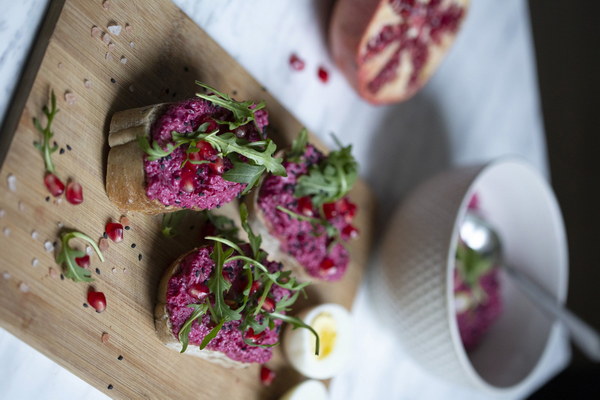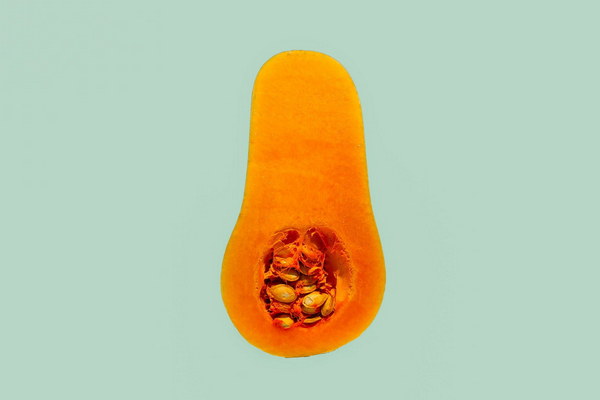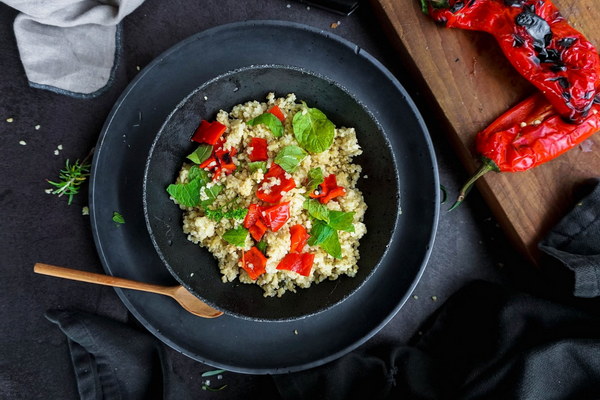Boost Your Stomach Health Fast How to Cultivate Chinese Chive for Maximum Gastric Benefits
Introduction:
Chinese chives, also known as green onions or scallions, are a versatile and flavorful herb that has been used for centuries in traditional Chinese medicine. These green, leafy plants are not only delicious in various dishes but also offer numerous health benefits, especially for your stomach. In this article, we will explore how to cultivate Chinese chives at home and enjoy their maximum gastric benefits.
1. Why Chinese Chives are Good for Your Stomach:
Chinese chives are packed with nutrients that can help improve your stomach health. Here are some reasons why these herbs are a must-have for your diet:
a. Anti-inflammatory properties: Chinese chives contain compounds that can reduce inflammation in the stomach lining, alleviating symptoms of conditions like gastritis or stomach ulcers.
b. Aid digestion: The high fiber content in Chinese chives can help promote healthy digestion, preventing constipation and bloating.
c. Alleviate bloating and gas: The natural diuretic properties of Chinese chives can help reduce bloating and gas, improving your stomach comfort.
d. Antioxidant protection: The antioxidants present in Chinese chives can protect your stomach lining from damage caused by free radicals.
2. How to Cultivate Chinese Chives at Home:
Growing Chinese chives is a simple and rewarding process. Follow these steps to cultivate your own chive plants and enjoy fresh herbs year-round:
a. Select a suitable location: Choose a spot in your garden or a sunny windowsill with at least 6-8 hours of direct sunlight per day.
b. Prepare the soil: Chinese chives thrive in rich, well-draining soil. Add compost or other organic matter to improve soil quality.
c. Plant the seeds: Sow the seeds in a shallow tray filled with seed starting mix. Cover the seeds lightly with soil and water them gently.
d. Transplanting: Once the seedlings are about 4 inches tall, transplant them into individual pots or directly into the garden. Space the plants about 4-6 inches apart to allow for growth.
e. Watering: Water the chive plants regularly, keeping the soil moist but not waterlogged. Reduce watering as the plants become more established.
f. Fertilizing: Feed the chive plants with a balanced, water-soluble fertilizer every 4-6 weeks to promote healthy growth.

g. Harvesting: To harvest the green tops, simply snip them off with a pair of scissors or pruning shears. This encourages new growth and ensures a continuous supply of fresh chives.
3. Incorporating Chinese Chives into Your Diet:
Once you have successfully cultivated your own Chinese chives, it's time to enjoy their health benefits in your diet. Here are some creative ways to use these flavorful herbs:
a. Add them to soups and stews: Chives are a great addition to any soup or stew, adding a burst of flavor and health benefits.
b. Sprinkle on salads: Toss fresh chives into salads for a fresh, aromatic touch.
c. Season meats: Use chives to season meats like chicken, pork, or fish for a delicious, stomach-friendly dish.
d. Make chive butter: Blend fresh chives with butter for a delightful spread on bread or a flavor-packed topping for steamed vegetables.
Conclusion:
Cultivating Chinese chives at home is an excellent way to enjoy their numerous health benefits, particularly for your stomach. By incorporating these flavorful herbs into your diet, you can experience improved digestion, reduced bloating, and enhanced overall stomach health. So, roll up your sleeves and start growing your own Chinese chives today!









